Renaming of Stone Mountain street linked to KKK could banish stigma
As a little girl, before the roads were paved, Lydia Shumake made a lot of happy memories on a street that bore a controversial name.
For decades, her aunt and cousin’s home in the city of Stone Mountain bordered Venable Street, named for the family that used to own Stone Mountain and had strong ties to the Ku Klux Klan, according to archives and records. Venable Street runs for four blocks through Shermantown, the historically African-American part of the city of Stone Mountain, where Shumake often visited her family while growing up.
Spearheaded by members of the Shermantown community, a push to counter the negative stigma that accompanies the Venable name has gained steam in recent months. The Stone Mountain City Council is set to vote Nov. 7 to rename Venable Street to Eva Mamie Lane — named after Shumake’s aunt and cousin, Eva Jewell Greene and Mamie Ella Lane.
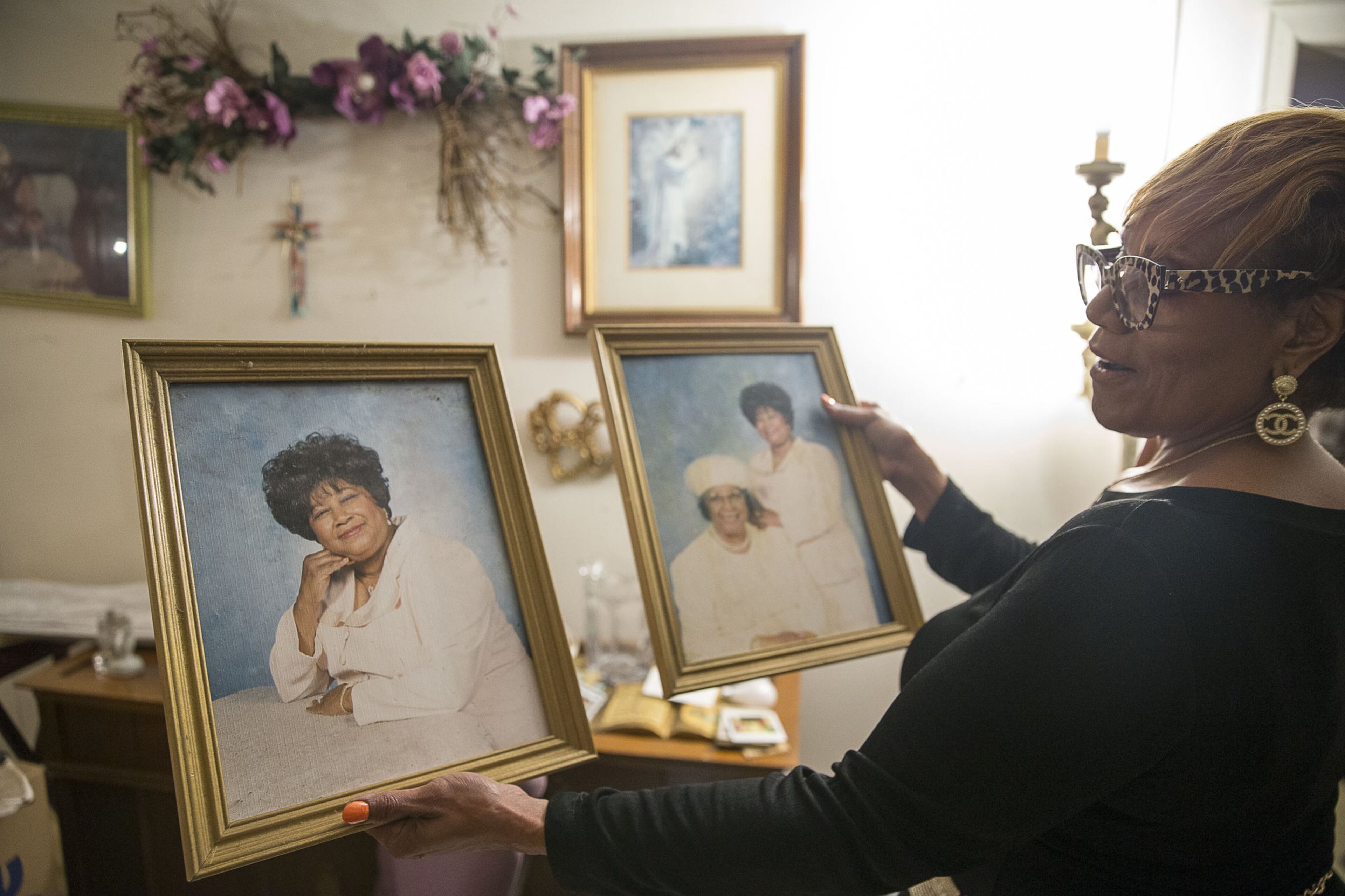
The mother and daughter were considered pillars of the Stone Mountain community, known for their outreach efforts, the leadership-based organizations they founded and the charity they provided to those in need. Greene died in 2006 at age 85, and her daughter died earlier this year at 77.
“My aunt and my cousin have given their lives and made an impact for that community,” Shumake said. “It shows it’s a new day coming in Stone Mountain, that they’re getting rid of all that negativity.”
‘We have moved forward’
The name change would rename the entire length of Venable Street, which is less than half a mile long on the east side of the small city. From the corner near where Greene and Lane lived, the top of Stone Mountain is visible above the trees.
It's unclear exactly when the street was named, and whether it was named after a specific member of the Venable family. Brothers William and Samuel Venable previously owned Stone Mountain, which they used as a granite quarry. They gave the Klan permission to meet at the mountain, where the group staged a cross burning and "rebirth" in 1915, according to Atlanta Journal-Constitution archives. When the Venables sold the property to the state in the 1950s, it was designated to become a memorial to the Confederacy.
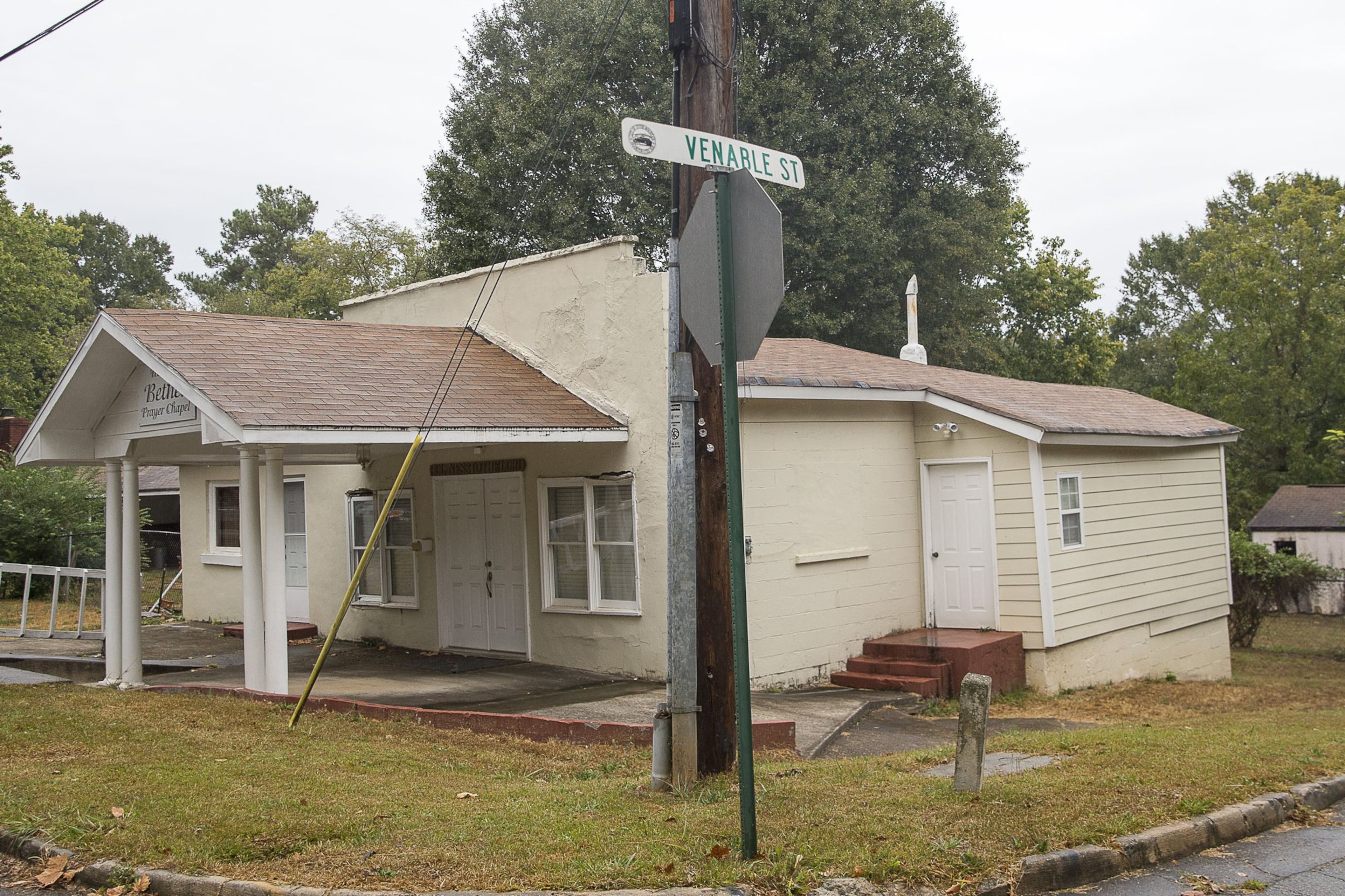
Decades later, James Venable became the Imperial Wizard of the National Knights of the Klan for nearly 25 years — a fact noted in his obituary that ran in The New York Times. He was also a mayor of Stone Mountain, using the nearby land for annual Klan rallies, newspaper stories stated.
Shermantown residents remember seeing the KKK march through town in the 1960s on their way to the mountain.
“We would have to get in the house,” Shumake said. “We would have to hide down on that floor.”
» RELATED: State to help city of Stone Mountain shed its old reputation
Residents and leaders in Stone Mountain — which is now about two-thirds black — said changing the street name is a way to shed the negative stigma that accompanies the city’s history. The past links to hatred and racism, they said, do not represent the welcoming and diverse spirit of the city today. It also follows a pattern in communities across DeKalb County of reckoning with past acts of racism, and highlighting the positive contributions of African-Americans.
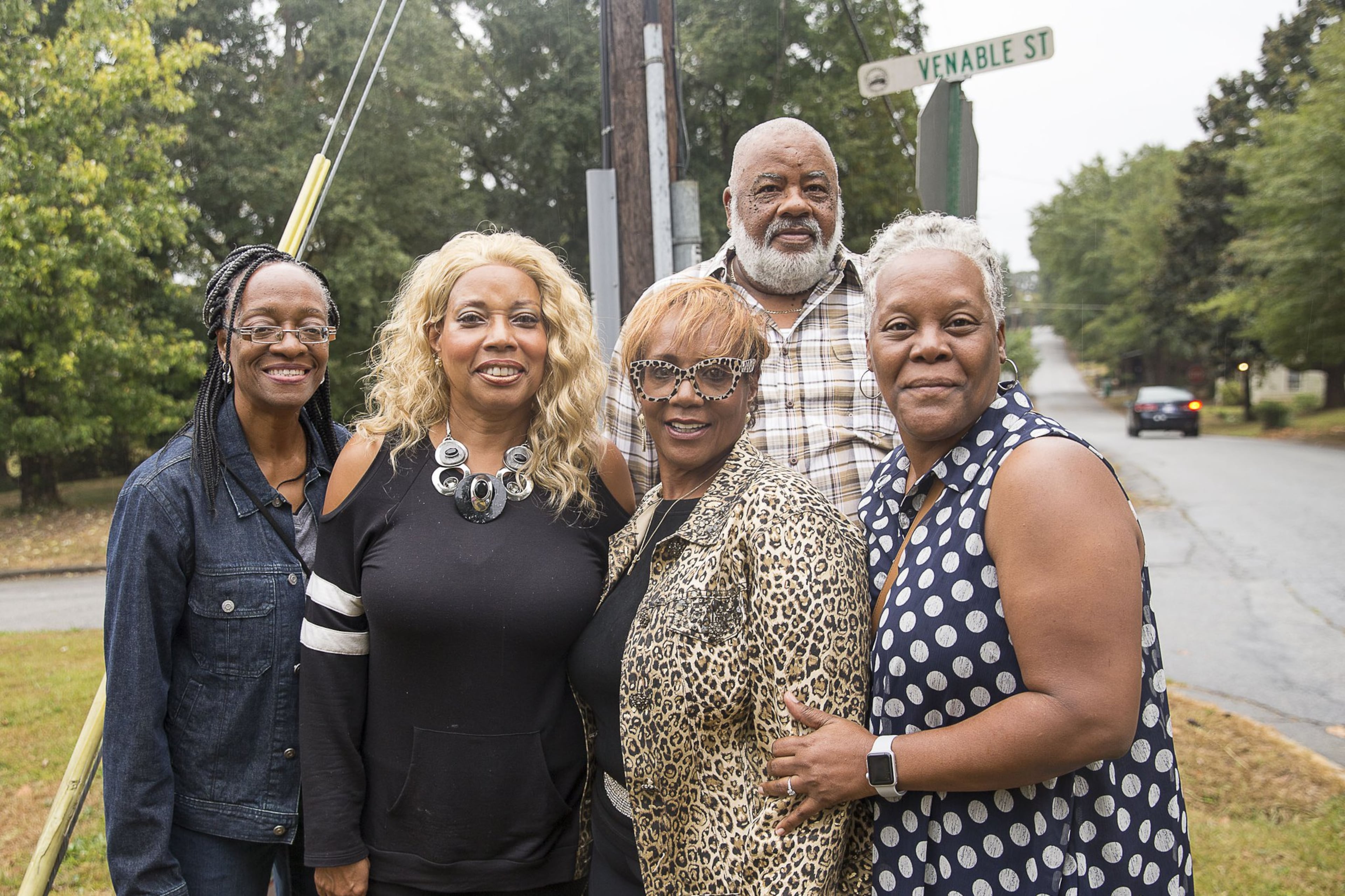
“This will help people to see the positive side of what has happened in the community,” said Vivian Moore, a longtime family friend who treated Greene as her own mother. “And how much we have moved forward.”
Paving the way
Eva Jewell Greene and Mamie Ella Lane were not elected officials, and their names probably do not ring a bell for most metro Atlanta residents. But in Stone Mountain and the surrounding neighborhood, they were leaders and organizers.
Many remember the mother-daughter duo for the outreach organizations they founded and led: The DeKalb Economic Opportunity Authority, the Stone Mountain Negro Civic League, the DeKalb Neighborhood Leadership Institute and the Georgia Citizens Coalition on Hunger.
The family lived in a modest one-story home next to a building that Greene’s husband Henry used as a shop and grill. In 1963, Lane turned the building — located at the corner of Venable and Third streets — into the House of Bethel Prayer Chapel. There, she held prayer groups every Tuesday and did outreach ministry.
The two women were strong community advocates. Family and friends say Greene, who many called “Mother Greene,” helped to eventually get the roads paved in the neighborhood. Around Shermantown, they used their personal relationships to help their neighbors, often opening up their home to people who needed a place to stay.

“This is where my aunt did most of her prayer teaching and studying,” Shumake said while cleaning out her aunt and cousin’s old living room. The home, built in 1933, is still packed with books and fine china.
She remembers visiting here during the summer, on weekends or on holidays. She loved her aunt’s biscuits and rolls, eating them around the dining room table with her cousin. Greene, serving the meals, was insistent on formality and table manners when they dined on the china plates.
The story goes that many area politicians, such as the late sheriff-elect Derwin Brown, would not launch a run for office before first visiting the house and getting a blessing from Greene and Lane.
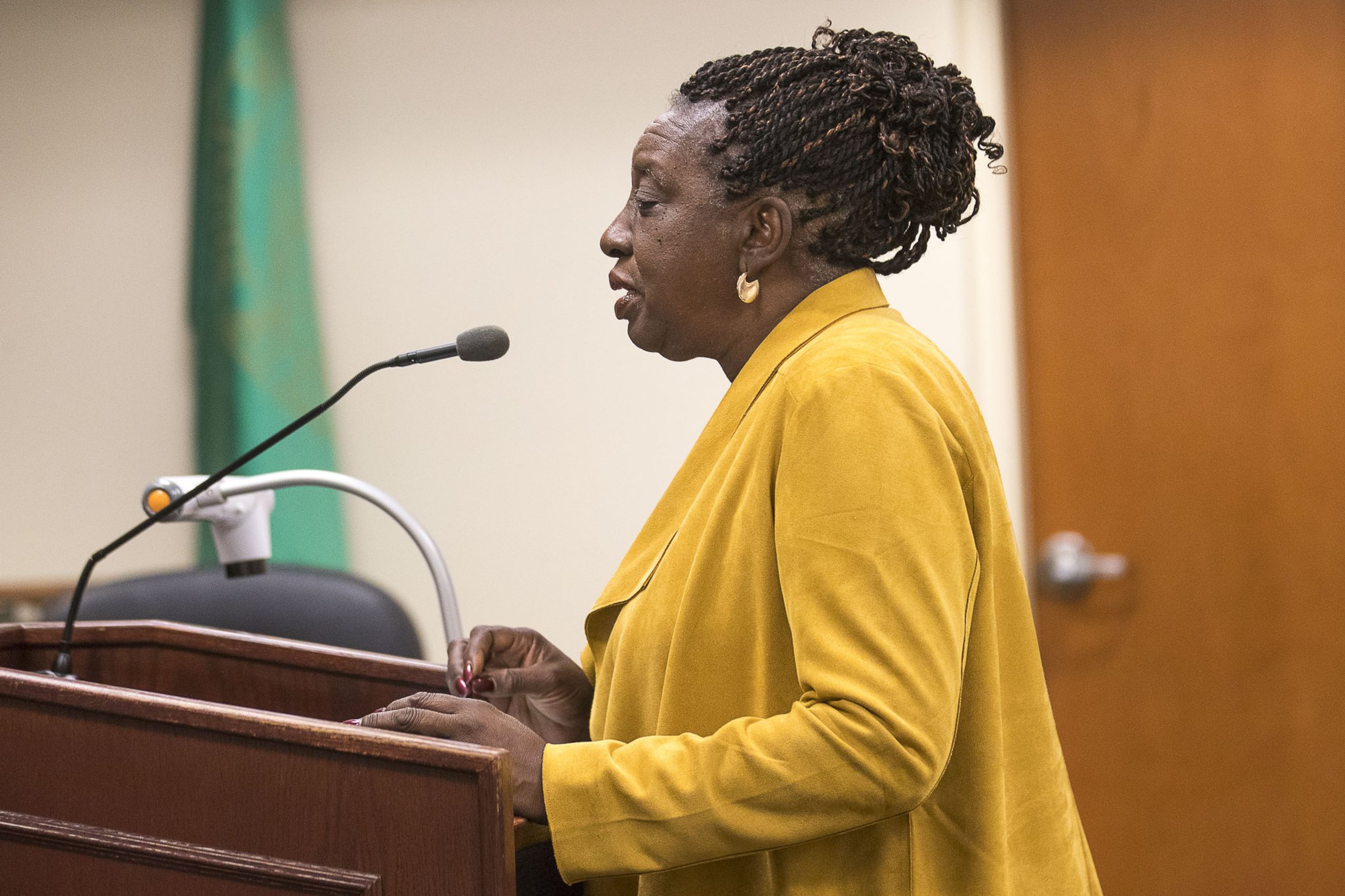
Moore enjoyed visiting their home simply to “sit with them and just listen to the stories they told.” Moore credits “Mother Greene” with teaching her about outreach and community organizing.
“Mamie was right by her side. Wherever Mother went, Mamie’s right there,” Moore said. When Greene died, her daughter took over a lot of her work.
‘Spirit of reconciliation’
Ahead of the Nov. 7 vote, city officials seem generally supportive of the street name change. Several City Council members knew both women personally.
“They were very great folks,” Mayor Patricia Wheeler said, remembering when Greene would often call her out of the blue and ask her to meet to discuss a city issue. “She was a wonderful, pleasant person, and is still missed a great deal. She and her daughter both.”
At a recent public hearing on the measure, eight people spoke about how “Eva Mamie Lane” would appropriately honor the two beloved figures, while moving on from the negative implications attached to the Venable name.
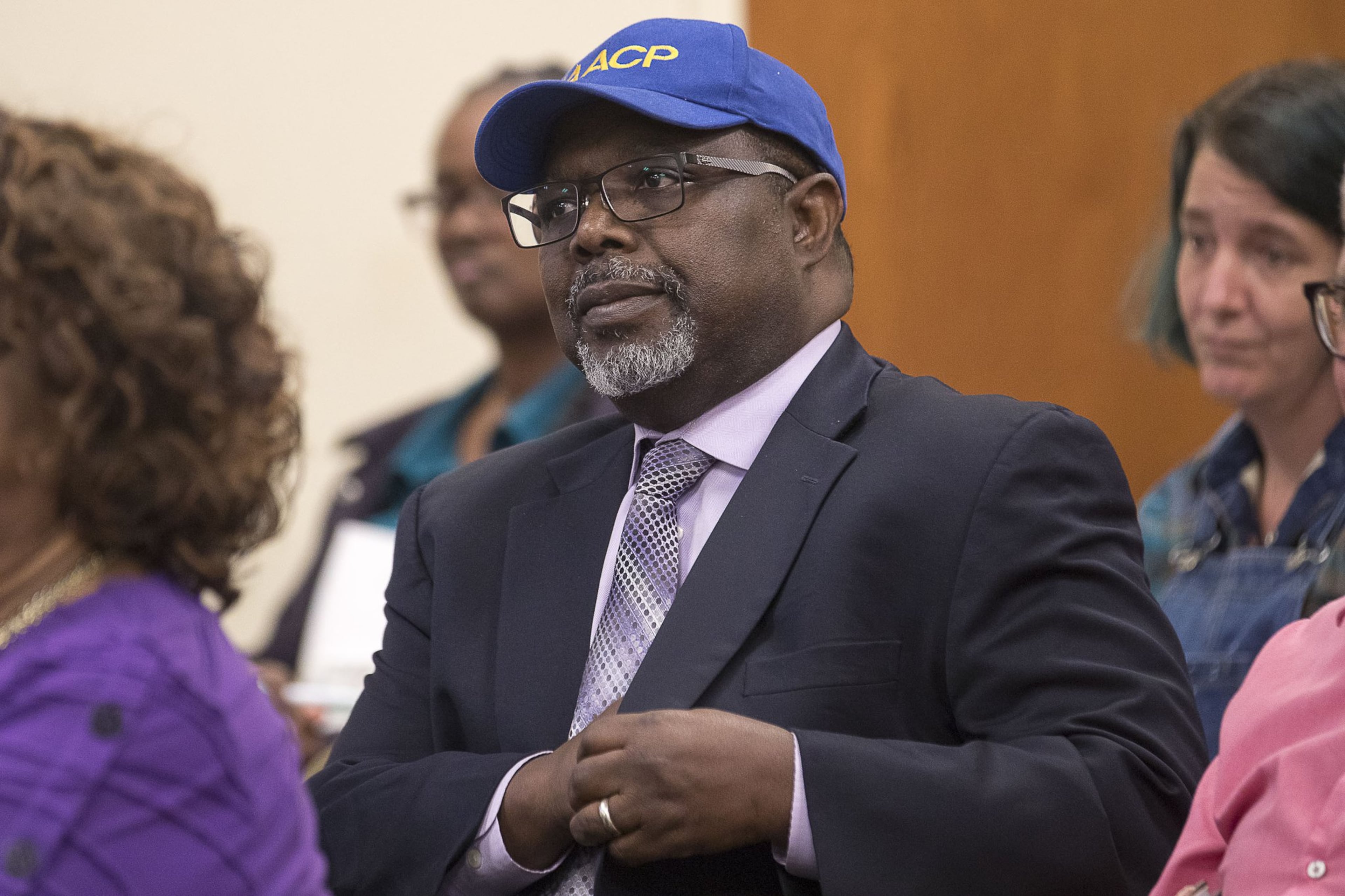
Lance Hammonds, a vice president for the DeKalb branch of the NAACP, told the council that the proposal follows a "spirit of reconciliation" happening across the county. That includes the plaque recently installed next to the Confederate monument in Decatur Square, intended to provide a more accurate account of history and the purpose of the monument.
» RELATED: Effort in DeKalb County seeks to honor black victims of lynchings
“The Venable Street name is rooted in hate,” Hammonds said. “The city of Stone Mountain has an opportunity to choose how it wants to represent itself to the world. You can choose a symbol of hate and terror, or you can choose symbols of love and reconciliation.”
Four rows back at the meeting, Shumake looked on proudly as the goodwill of her aunt and cousin were repeatedly lauded. The legacy would live on.


